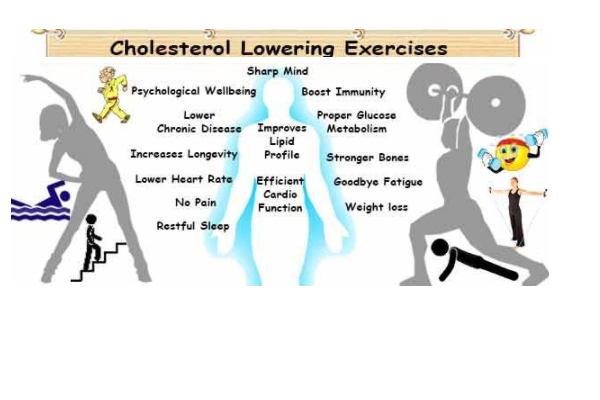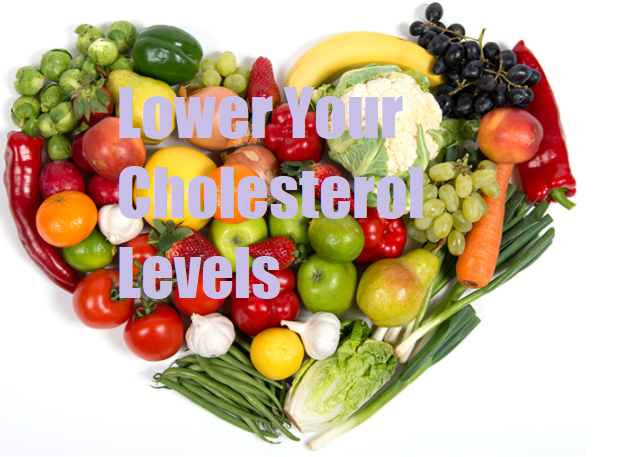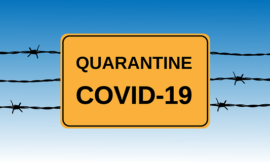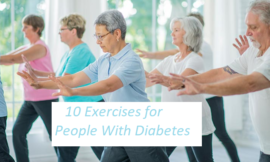In our body cholesterol is made in your liver and has many important functions. The good cholesterol helps keep the walls of your cells flexible and is needed to make several hormones. But too much of cholesterol or cholesterol in wrong places is not good, which creates health issues.
Like fat, cholesterol does not dissolve in water. Instead, its transport in the body depends on molecules called lipoproteins, which carry cholesterol, fat and fat-soluble vitamins in the blood. Different kinds of lipoproteins have different effects on health.
So, maintaining cholesterol is important , following are 10 natural ways to lower your cholesterol level.
Monounsaturated Fats
As opposed to saturated fats, unsaturated fats have at least one double chemical bond that changes the way they are used in the body. Monounsaturated fats have only one double bond.
Although some recommend a low-fat diet for weight loss, a study of 10 men found a 6-week, low-fat diet reduced levels of harmful LDL, but also reduced beneficial HDL. In contrast, a diet high in monounsaturated fats reduced harmful LDL, but also protected higher levels of healthy HDL.
Monounsaturated fats may also reduce the oxidation of lipoproteins, which contributes to clogged arteries. Studies found that replacing polyunsaturated fats with monounsaturated fats in the diet reduced the oxidation of fats and cholesterol.
Here are a few great sources of monounsaturated fats. Some are also good sources of polyunsaturated fat:
- Olives and olive oil
- Canola oil
- Tree nuts, such as almonds, walnuts, pecans, hazelnuts and cashews
- Avocados
Fill Up on Fiber
Foods like oatmeal, apples, prunes, and beans are high in soluble fiber, which keeps your body from absorbing cholesterol. Research shows that people who ate 5 to 10 more grams of it each day saw a drop in their LDL. Eating more fiber also makes you feel full, so you won’t crave snacks as much. But beware: Too much fiber at one time can cause abdominal cramps or bloating. Increase your intake slowly.
Ban Trans Fats
Trans fats are unsaturated fats that have been modified by a process called hydrogenation.
This is done to make the unsaturated fats in vegetable oils more stable as an ingredient. Many margarines and shortenings are made of partially hydrogenated oils.
Trans fat raise your LDL, lower your HDL, and increase your risk of developing heart disease and stroke. They’re found in fried foods, baked goods like cakes, pie crusts, frozen pizza, and cookies and stick margarines.
The resulting trans fats are not fully saturated, but are solid at room temperatures. This is why food companies have used trans fats in products like spreads, pastries and cookies — they provide more texture than unsaturated, liquid oils.
Polyunsaturated Fats
Polyunsaturated fats have multiple double bonds that make them behave differently in the body than saturated fats. Research shows that polyunsaturated fats reduce “bad” LDL cholesterol and decrease the risk of heart disease. Polyunsaturated fats also seem to reduce the risk of metabolic syndrome and type 2 diabetes.
If you replace calories from carbohydrates with polyunsaturated fats, it will reduce blood glucose and fasting insulin levels, which indicates a decreased risk of type 2 diabetes.
Exercise

Exercise is best for heart health. Not only does it improve physical fitness and help combat obesity, but it also reduces harmful LDL and increases beneficial HDL. Combined aerobic and resistance exercise will help to reduce harmful oxidized LDL.
While even low-intensity exercise like walking increases HDL, making your exercise longer and more intense increases the benefit, a 30 minutes of activity five days a week is enough to improve cholesterol and reduce the risk of heart disease.
Ideally, aerobic activity should raise the heart rate to about 75% of its maximum. Resistance training should be 50% of maximum effort. Resistance exercise can decrease LDL even at modest intensity. At maximum effort it also increases HDL. Increasing the number of sets or repetitions increases the benefit.
Lose Weight
Dieting influences the way your body absorbs and produces cholesterol. You don’t have to lose a lot of weight to lower your cholesterol. If you’re overweight, drop just 10 pounds and you’ll cut your LDL by up to 8%. But to really keep off the pounds, you’ll have to do it over time.
Overweight women usually need 1,000 to 1,200 calories daily for weight loss, active, overweight women and women weighing more than 164 pounds usually require 1,200 to 1,600 calories each day. If you’re extremely active during your weight-loss program, you may require additional calories to avoid hunger.
Overall, weight loss has a double benefit on cholesterol by increasing beneficial HDL and decreasing harmful LDL.
Laugh More
Laughter is like medicine. It increases HDL, need to add some comic relief to your life. Check out silly pet videos online, sign up for a joke-a-day email, or watch funny movies.
Avoid Smoking
Smoking increases the risk of heart disease in several ways. One of these is by changing how the body handles cholesterol.
The immune cells in smokers are unable to return cholesterol from vessel walls to the blood for transport to the liver. This damage is related to tobacco tar, rather than nicotine. These dysfunctional immune cells may contribute to the faster development of clogged arteries in smokers.If you give up smoking can reverse these harmful effects.
Opt for Olive Oil
Olive oil is he best substitute for butter and other oils, it may LDL cholesterol. The “good” fats in olive oil benefit your heart. Choose extra-virgin olive oil. It’s less processed and contains more antioxidants, which help prevent disease.
Limit alcohol consumption
If you use alcohol moderation, the ethanol in alcoholic drinks increases HDL and reduces the risk of heart disease. Alcohol also improves “reverse cholesterol transport,” meaning cholesterol is removed from blood and vessel walls and taken back to the liver. This reduces the risk of clogged arteries and heart disease.
Moderate intake of alcohol reduces heart disease risk and too much alcohol harms the liver and increases the risk of dependence.





